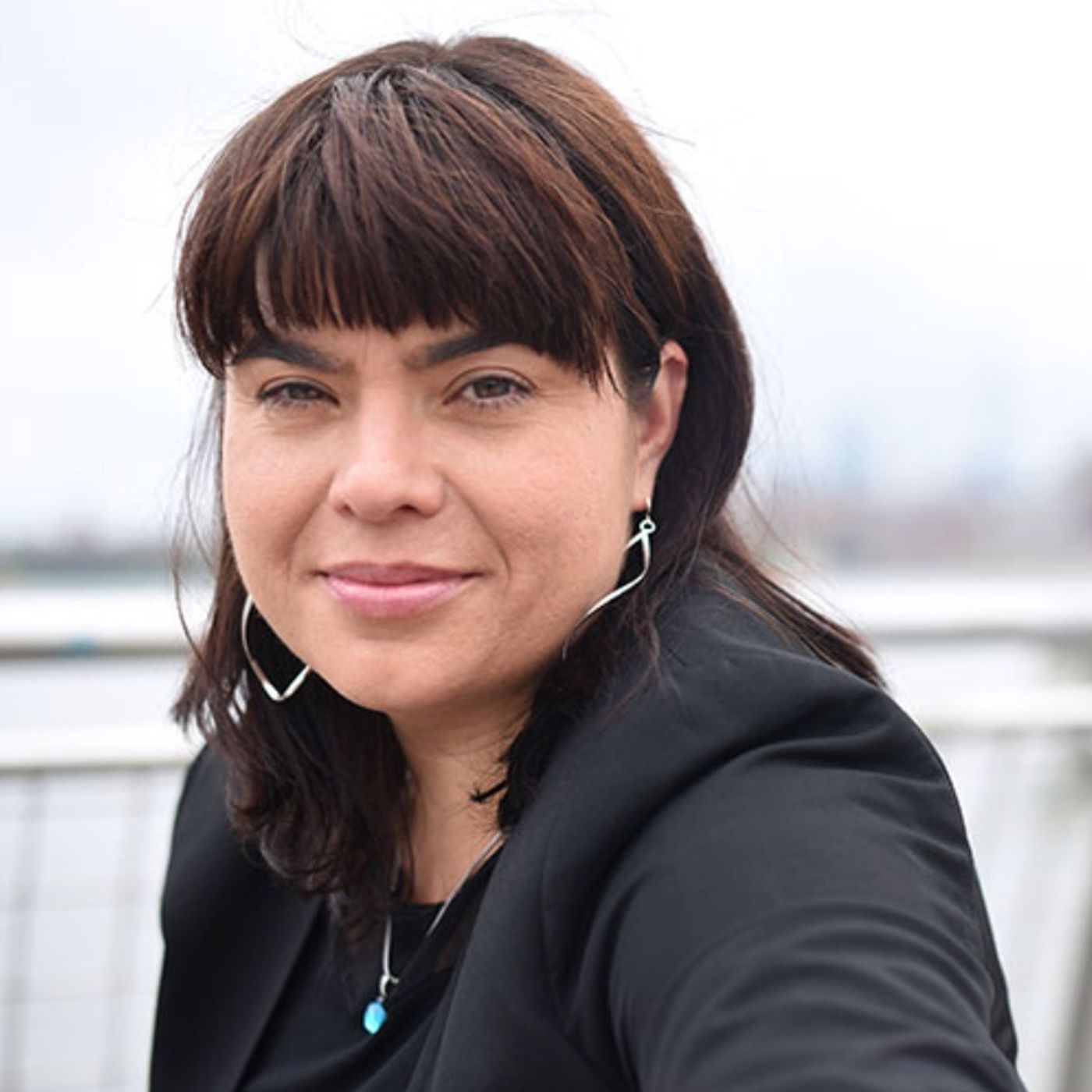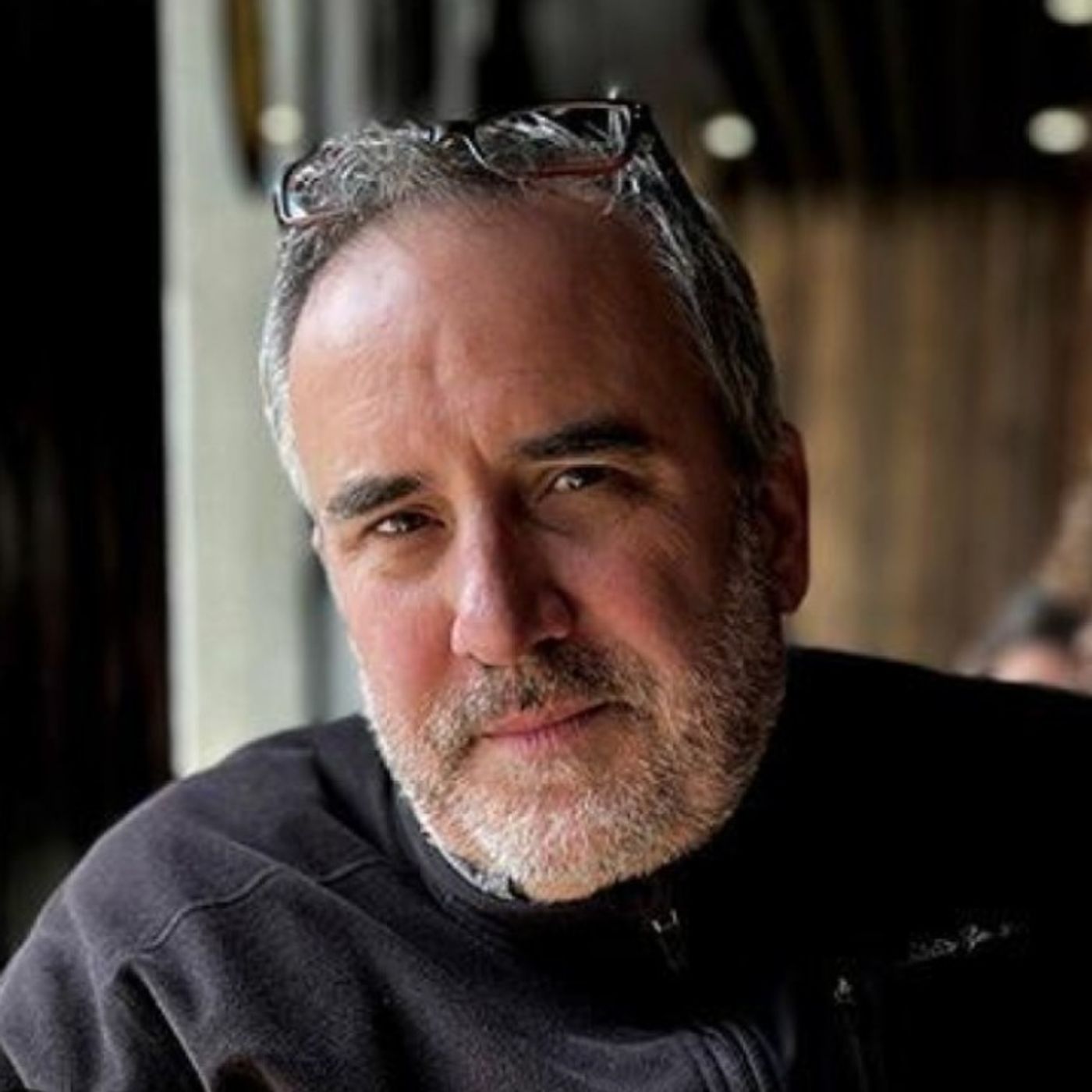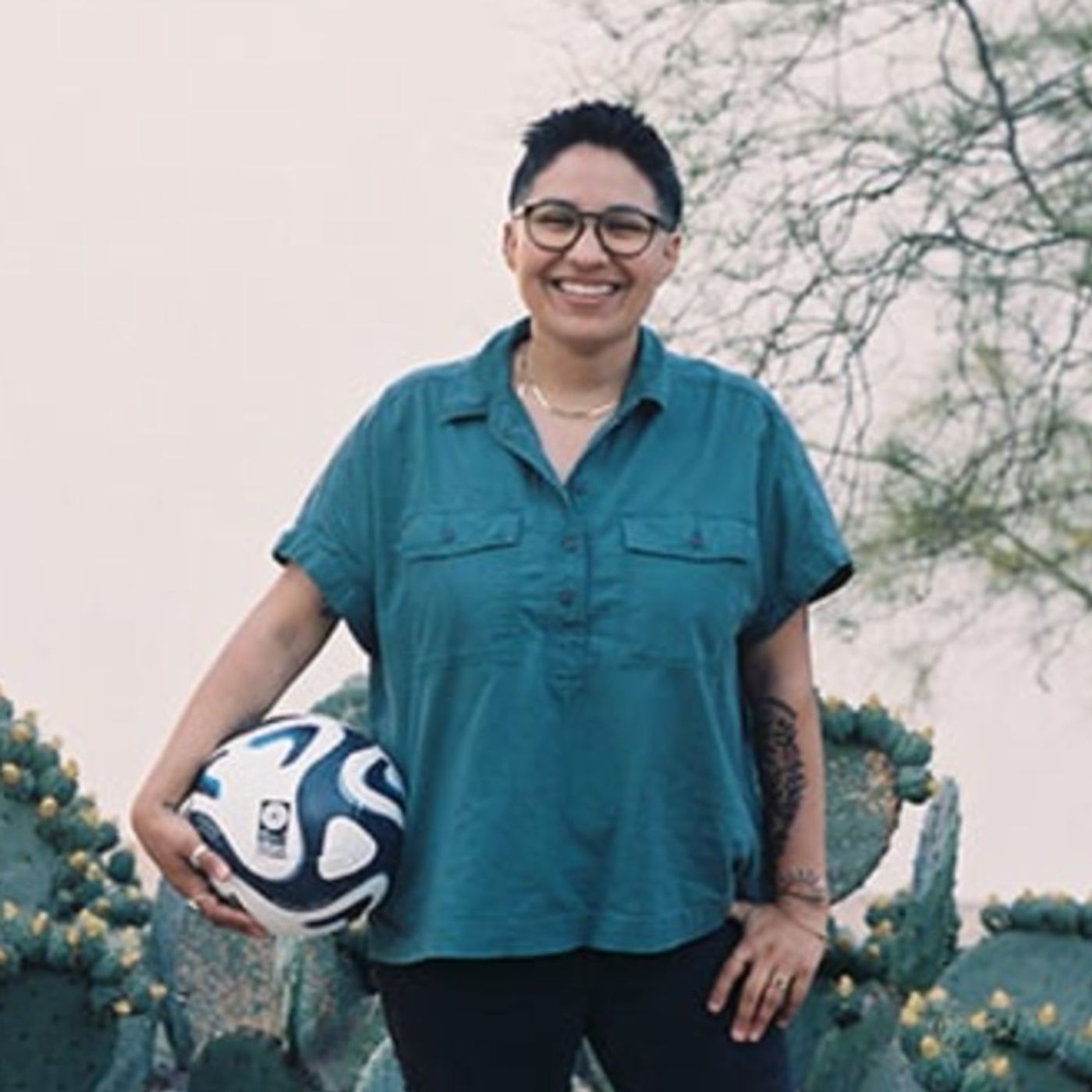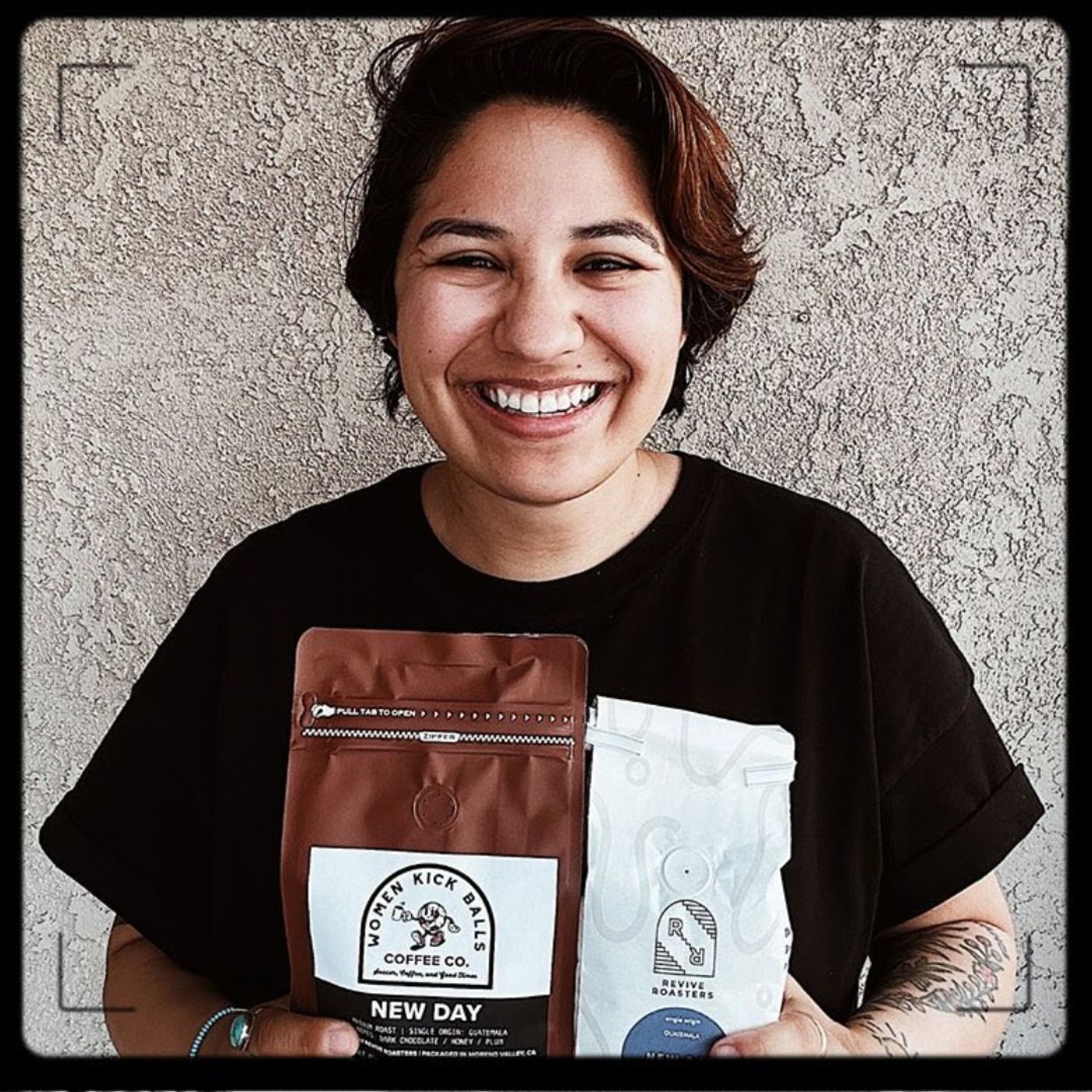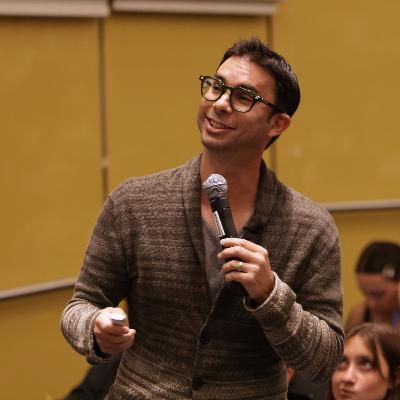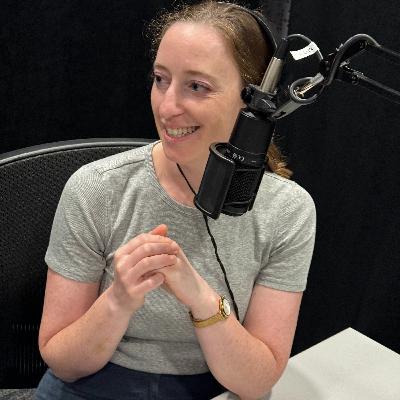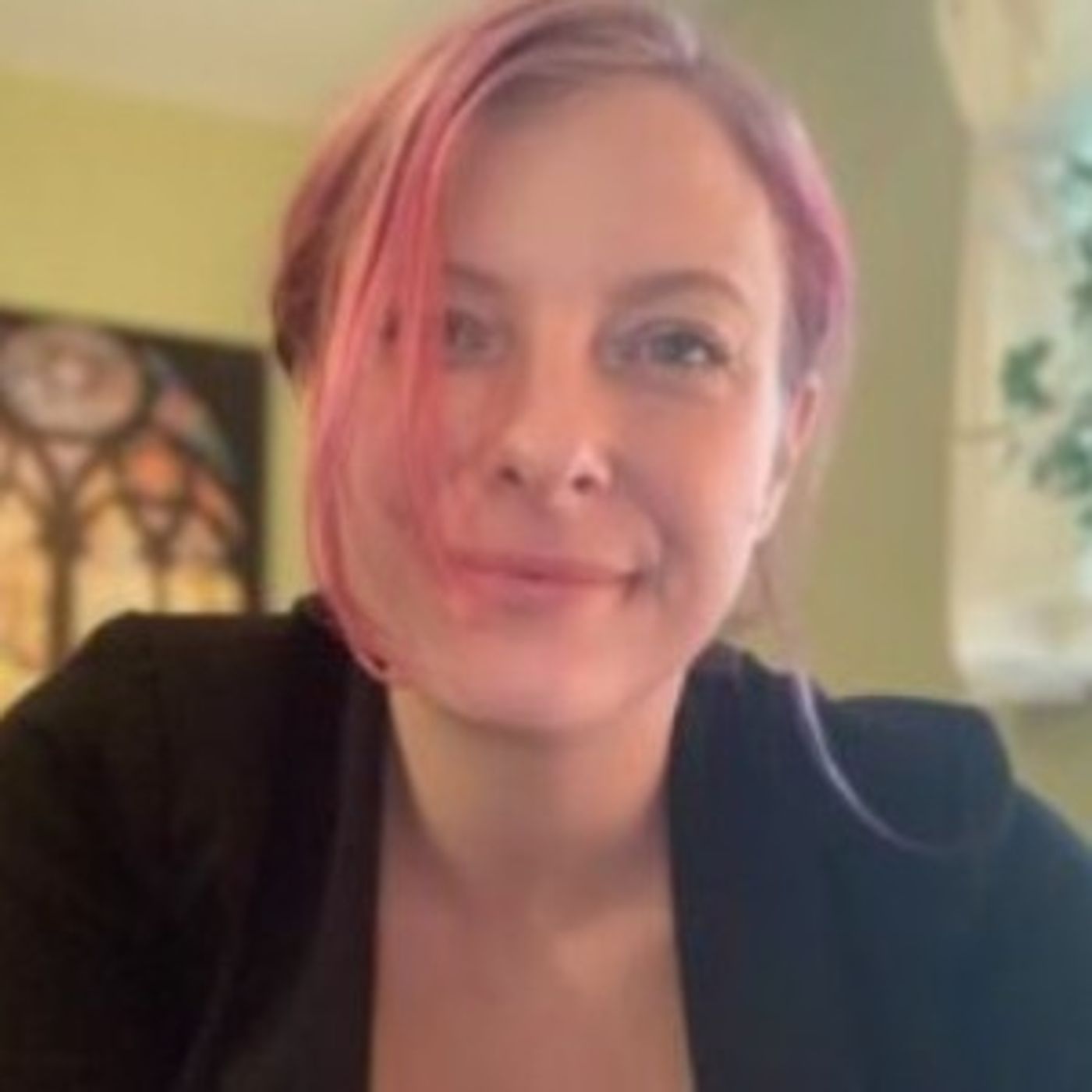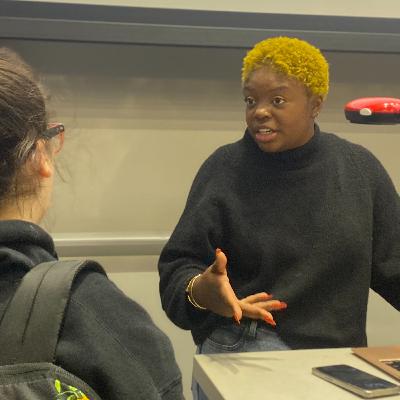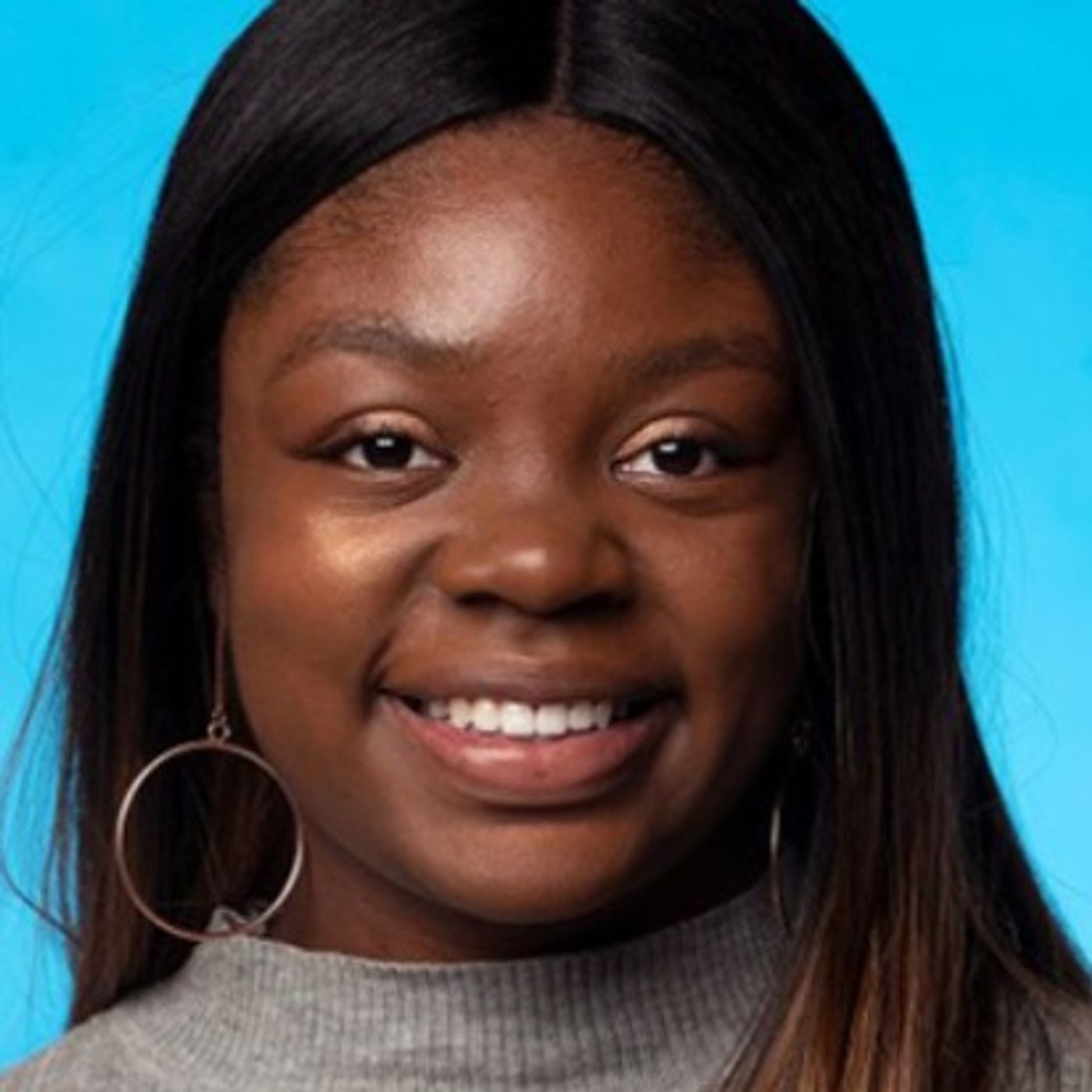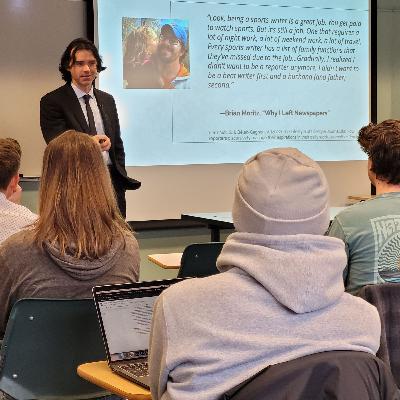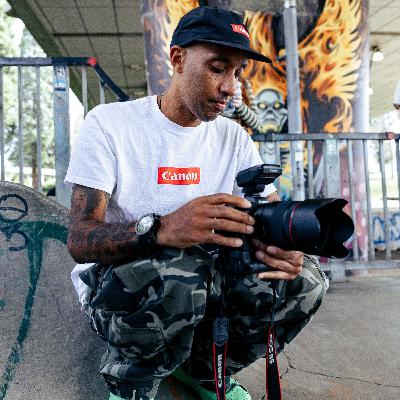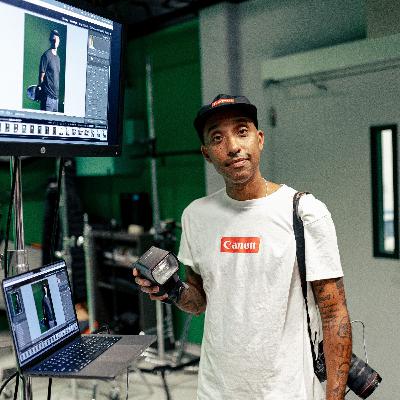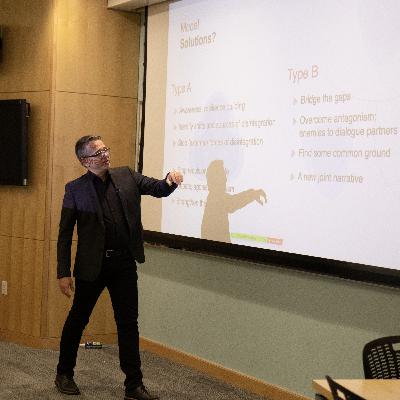Discover Demystifying Media at the University of Oregon
Demystifying Media at the University of Oregon

Demystifying Media at the University of Oregon
Author: UO School of Journalism and Communication, Damian Radcliffe
Subscribed: 7Played: 68Subscribe
Share
© All rights reserved
Description
How we consume and create media is changing faster than ever. The Hearst Demystifying Media Series from the School of Journalism and Communication (SOJC) at the University of Oregon explores these dynamics. With interviews and guest lecturers from leading media practitioners and scholars, it dives into the latest digital developments and their implications.
Hosted by University of Oregon journalism professor Damian Radcliffe, each episode features leading experts—media practitioners, academics, and researchers— to talk about these global developments. Conversations and guest lectures are recorded at the University of Oregon campus in the Pacific North West.
#demystifying #UOSOJC
Get in touch:
damianr@uoregon.edu
@damianradcliffe
damianradcliffe.com
UO School of Journalism and Communication:
@uosojc
Hosted by University of Oregon journalism professor Damian Radcliffe, each episode features leading experts—media practitioners, academics, and researchers— to talk about these global developments. Conversations and guest lectures are recorded at the University of Oregon campus in the Pacific North West.
#demystifying #UOSOJC
Get in touch:
damianr@uoregon.edu
@damianradcliffe
damianradcliffe.com
UO School of Journalism and Communication:
@uosojc
71 Episodes
Reverse
About Our GuestHilke Schelmann is an Emmy-Award winning journalist, freelance reporter and journalism professor at NYU. She covers artificial intelligence and the future of work for the Wall Street Journal, the Guardian and MIT Technology Review amongst others. She was a showrunner and reporter for the Wall Street Journal's video series Moving Upstream and her work has been featured in The New York Times, MIT Technology Review, TIME, The Atlantic and many others. She won an Emmy for her direction and filming of the documentary "Outlawed in Pakistan" which was also dubbed “among the standouts” at the Sundance Film Festival and she was a finalist for the Peabody Awards in 2017 for her investigation into student debt for VICE's flagship news magazine VICE on HBO. Find Hilke Schellman online:LinkedInProfessional WebsiteXNYU Arts & SciencesInstagramShow Notes1:07: What inspired you to start writing about AI5:02: How companies use AI in job hiring processes9:38: Drawbacks of using AI in job hiring processes12:34: Improvements to job hiring processes15:18: Advice for job seekers to succeed21:06: What should journalists do to hold AI accountable23:14: The need to improve AI literacy26:41: Takes from lecture at University of Oregon28:30: Optimism for the future of Journalism and AIRead the transcript for this episodeThis podcast was produced by Isaac Dubey; check out their portfolio to find out more about them:Isaac DubeyWant to listen to this episode a different way? Find us wherever you get your podcasts:Apple PodcastsSpotifyYouTubeAmazon Music/AudiblePandoraiHeartRadioPodBeanTuneInPodchaser
About Our GuestGreg Constantine is a documentary photographer, author, visual journalist whose work primarily focuses on human rights, injustice, and equality. Constantine has been featured in The New York Times, International Herald Tribune, Newsweek, The New Republic, The Atlantic, The Economist, Wall Street Journal, Mother Jones, CNN, and Al-Jazeera. Constantine spent over 11 years documenting stateless communities in 18 countries, has worked with several international human rights organizations, and exhibitions of his work have been shown in over 50 cities around the world. He has also received several awards for his work including the Distinguished Visiting Fellowship at Queen Mary University of London. Find Greg Constantine Online: WebsiteInstagramLinkedInX/TwitterShow Notes01:09: Inspiration to get started in photography04:11: Advantages of doing long-form journalism06:24: Starting in this field later in life 08:19: How unexpected career journeys can be09:33: Seven doors on immigration project16:09: Creative initiatives23:29: Separating advocacy and journalism in his work 29:50: How long-form journalism changes the approach 35:15: Experience giving a lecture at UO39:59: Future ProjectsRead the transcript for this episode This podcast was produced by Isaac Dubey; check out their portfolio to find out more about them:Sports Journalism Portfolio Want to listen to this episode a different way? Find us wherever you get your podcasts:Apple PodcastsSpotifyYouTubeAmazon Music/AudiblePandoraiHeartRadioPodBeanTuneInPodchaser
About Our GuestJackie Gutierrez is the founder and owner of Women Kick Balls, an independent media company providing free articles for soccer fans at all levels. Jackie has over nine years of experience covering the National Women's Soccer League and the US Women's National Team. In 2025, Jackie created Women Kick Balls Coffee Company, brewing fresh coffee which she sells online and operates as a mobile coffee cart to connect with families at youth soccer games. She also provides media and public relations services to soccer organizations, athletes, and content creators and is a contributing writer at Forbes.com.Find Jackie Gutierrez OnlineFacebookInstagramX/TwitterTikTokYouTubeShow Notes00:03: Guest introduction01:24: Inspiration for Women Kick Balls07:29: Women Kick Balls's audience09:43: Managing time as an entrepreneur and journalist14:16: Biggest lesson learned in business24:00: Most surprising aspect of Women Kick Balls26:50: Challenges of being an independent journalst 31:10: Proudest accomplishment39:11: Coming to UO as an alumRead the transcript for this episode Hear More From Jackie Gutierrez:Lecture Audio This podcast was produced by Isaac Dubey; check out their portfolio to find out more about them:Sports Journalism Portfolio Want to listen to this episode a different way? Find us wherever you get your podcasts:Apple PodcastsSpotifyYouTubeAmazon Music/AudiblePandoraiHeartRadioPodBeanTuneInPodchaser
About Our Guest:Jackie Gutierrez is the founder and owner of Women Kick Balls, an independent media company providing free articles for soccer fans at all levels. Jackie has over nine years of experience covering the National Women's Soccer League and the US Women's National Team. In 2025, Jackie created Women Kick Balls Coffee Company, brewing fresh coffee which she sells online and operates as a mobile coffee cart to connect with families at youth soccer games. She also provides media and public relations services to soccer organizations, athletes, and content creators and is a contributing writer at Forbes.com. Find Jackie Gutierrez Online:FacebookInstagramX/TwitterTikTokYouTube Want to listen to this episode a different way? Find us wherever you get your podcasts:Apple PodcastsSpotifyYouTubeAmazon Music/AudiblePandoraiHeartRadioPodBeanTuneInPodchaser
About Our Guest:Roberto Valenzuela is a wedding, portrait, commercial and fashion photographer partnered with Canon USA. As a Canon Explorer of Light, Valenzuela is recognized for his innovative use of light in photography and outstanding influence in the photography field. His wedding photography has been featured in Cosmopolitan Bride, Rangefinder and Professional Photographers of America. He is the top-selling wedding photography author on Amazon with his Picture Perfect and Wedding Storytelling series'. Find Roberto Valenzuela Online:PortfolioInstagramAmazon Author PageYouTubeWant to listen to this episode a different way? Find us wherever you get your podcasts:Apple PodcastsSpotifyYouTubeAmazon Music/AudiblePandoraiHeartRadioPodBeanTuneInPodchaser
About Our Guest:Rose Rimler is a senior producer for the Spotify/Gimlet Media podcast Science Vs. An alumni from the University of Oregon, Rose graduated with a masters in marine biology and conducted studies on oysters in the Pacific Northwest. She was a AAA Mass Media fellow with the American Association for the Advancement of Science and has written for the Raleigh News and Observer, Healthline, and Sleep Review Magazine. Science Vs. researches claims made on social media and examines whether the ideas are based in fact or not. Science Vs. takes material from political discourse and controversial opinion, with topics ranging from universal healthcare to fad diets. Rose's work for Science Vs. has been praised in the New York Times, the LA Times, the Atlantic, and more. Find Rose Rimler Online-Linkedin-Twitter-GimletShow Notes00:03: Guest Introduction01:20: Rose's marine biology background 04:25: Moving from science to news writing 07:51: Internship culture and changes with COVID-1909:46: The multi-media journalism learning curve 12:01: Background on Science Vs. 14:40: Rose's favorite episodes of Science Vs. (Mass Shootings: How do we stop them?, Who Killed Affordable Housing?, Coronavirus: Pregnant in a Pandemic)19:39: Benefits of audio as a medium for storytelling21:43: Transitioning show styles to follow trends 32:54: Rose's recommendations for science news (Ed Yong, Gina Kolata, Decoding the Gurus, Debunk the Funk, Abbey Sharp) 34:45: Advice for aspiring science communicators37:10: Wrap-up Read the transcript for this episodeWant to listen to this episode a different way? Find us wherever you get your podcasts:Apple PodcastsSpotifyYouTubeAmazon Music/AudiblePandoraiHeartRadioPodBeanTuneInPodchaser
About Our Guest:Jason Rezaian is an award-winning journalist and global opinions columnist for The Washington Post, writing primarily on international affairs, press freedom, and human rights issues. He has devoted his life to advocating for freedom of speech, freedom of the press, and rights for journalists abroad and at home.Formerly the Post’s Tehran bureau chief, Rezaian is the host of 544 Days, the acclaimed Spotify Original podcast series based on his 2019 best-selling memoir, Prisoner, about his time as a hostage in Iran and the extraordinary efforts it took to free him. Rezaian was awarded the Thomas Jefferson Medal in Citizen Leadership in 2023 and serves as executive director of the Center for Strategic and International Studies Commission on Hostages and Wrongful Detention.Find Jason Rezaian Online:- Washington Post- Linkedin- Twitter- InstagramRead the transcript for this episodeWant to listen to this episode a different way? Find us wherever you get your podcasts:Apple PodcastsSpotifyYouTubeAmazon Music/AudiblePandoraiHeartRadioPodBeanTuneInPodchaser
About Our Guest:Erin Aubry Kaplan is a journalist with nearly three decades of experience as an opinion columnist. Her career spans various prestigious publications throughout the United States, notably the New York Times, Politico, and the Los Angeles Times, where she made history as the inaugural black opinion columnist. Kaplan's writing delves into an array of topics, with an emphasis on race-related issues, alongside broader discussions on culture, politics, and the arts. Her work has been featured and published in various anthologies. Find Erin Aubry Kaplan Online:- Website- TwitterRead the transcript for this episodeWant to listen to this episode a different way? Find us wherever you get your podcasts:Apple PodcastsSpotifyYouTubeAmazon Music/AudiblePandoraiHeartRadioPodBeanTuneInPodchaser
About Our Guest:Danny Parker, a PhD candidate at the School of Journalism and Mass Communication at the University of Wisconsin Madison is an ethnography researcher focusing on political engagement and media access. Danny's research examines the role communication ecologies play in the reproduction of poverty, and the development of political identity. As an ethnographer, she chronicles the lived experiences of extremely impoverished rural and urban communities by living among them and documenting their everyday lives. Danny has a professional background in international education. She taught English as a second language for seven years before pursuing her PhD. She obtained her bachelor's degree in applied linguistics from Georgia State University and her master's degree in journalism and mass communication from the University of Georgia. Her work has been recognized by awards from the International Communication Association (ICA), and the Association for Education in Journalism and Mass Communication (AEJMC). And she's been published in leading peer reviewed journals such as the Mass Communication and Society. Find Danny Parker Online:LinkedInTwitterUniversity of Wisconsin School of Journalism and Mass Communication ProfileTaylor & Francis Online Research Paper Read the transcript for this episodeListen to Danny Parker's LectureWant to listen to this episode a different way? Find us wherever you get your podcasts:Apple PodcastsSpotifyYouTubeAmazon Music/AudiblePandoraiHeartRadioPodBeanTuneInPodchaser
About Our Guest:Today we're joined by Danny Parker, a PhD candidate at the School of Journalism and Mass Communication at the University of Wisconsin Madison. Danny's research examines the role communication ecologies play in the reproduction of poverty, and the development of political identity. As an ethnographer, she chronicles the lived experiences of extremely impoverished rural and urban communities by living among them and documenting their everyday lives. Danny has a professional background in international education. She taught English as a second language for seven years before pursuing her PhD. She obtained her bachelor's degree in applied linguistics from Georgia State University and her master's degree in journalism and mass communication from the University of Georgia. Her work has been recognized by awards from the International Communication Association (ICA), and the Association for Education in Journalism and Mass Communication (AEJMC). And she's been published in leading peer reviewed journals such as the Mass Communication and Society. Find Danny Parker Online:LinkedInTwitterUniversity of Wisconsin School of Journalism and Mass Communication ProfileTaylor & Francis Online Research Paper Show Notes:00:02: Guest Introduction01:14: Danny's introduction to research03:24: Uncovering a research topic08:43: The relationship of government and media to impoverished communities16:52: Solutions to political disengagement20:33: Advocacy in media25:05: The response to Danny's research27:33: Wrap-upRead the transcript for this episodeListen to Danny Parker's LectureWant to listen to this episode a different way? Find us wherever you get your podcasts:Apple PodcastsSpotifyYouTubeAmazon Music/AudiblePandoraiHeartRadioPodBeanTuneInPodchaser
About Our Guest:Adriana Lacy, an award winning journalist and consultant based in Boston, Massachusetts. She is the founder and president of Adriana Lacy Consulting: a full service digital consulting firm helping publishers and businesses to grow their digital audiences. She is also an adjunct lecturer in the Journalism Department at Brandeis University, and the 2023 Forbes 30 Under 30 honoree, in recognition of her work as the founder of Journalism Mentors, a website dedicated to advancing early career journalists through mentoring and paid media opportunities. Prior to this, she worked in audience and engagement roles at Axios, the Los Angeles Times, The New York Times and The Nieman foundation.Find Adriana Lacy Online:- Website- Linkedin- Twitter- InstagramRead the transcript for this episodeHear More From Adriana Lacy Interview Want to listen to this episode a different way? Find us wherever you get your podcasts:Apple PodcastsSpotifyYouTubeAmazon Music/AudiblePandoraiHeartRadioPodBeanTuneInPodchaser
About Our Guest:Adriana Lacy, an award winning journalist and consultant based in Boston, Massachusetts. She is the founder and president of Adriana Lacy Consulting: a full service digital consulting firm helping publishers and businesses to grow their digital audiences. She is also an adjunct lecturer in the Journalism Department at Brandeis University, and the 2023 Forbes 30 Under 30 honoree, in recognition of her work as the founder of Journalism Mentors, a website dedicated to advancing early career journalists through mentoring and paid media opportunities. Prior to this, she worked in audience and engagement roles at Axios, the Los Angeles Times, The New York Times and The Nieman foundation.Find Adriana Lacy Online:- Website- Linkedin- Twitter- InstagramShow Notes00:03: Guest Introduction01:16: Adriana's journey to becoming a journalist03:00: Importance of student media and journalism 05:19: Discovering digital audience engagement and unique paths in journalism10:42: Trends in digital news and social media 13:21: Founding Journalism Mentors 19:06: How AI will change the landscape of journalism and social media 28:23: Wrap-upRead the transcript for this episodeWant to listen to this episode a different way? Find us wherever you get your podcasts:Apple PodcastsSpotifyYouTubeAmazon Music/AudiblePandoraiHeartRadioPodBeanTuneInPodchaser
About Our Guest:Gregory P. Perreault (Ph.D., Missouri) is a scholar of digital journalism, focusing on journalistic epistemology, hostility in journalism and digital labor.He currently serves as Vice Chair of the Standing Committee of Research for the Association for Education in Journalism and Mass Communication (AEJMC) and as Reviews Editor for Journalism & Mass Communication Quarterly. He served as Fulbright-Botstiber Professor of Austrian-American Studies at the University of Vienna Journalism Studies Center (2020-2021). His work appears in New Media & Society, Digital Journalism, Journalism, Journalism Studies, Journalism Practice and Journalism & Mass Communication Quarterly. His book Digital Journalism and the Facilitation of Hate (Routledge) was published in 2023. An avid runner, he most recently ran the 39.3 Asheville Marathon and a Half in Asheville, North Carolina. This episode was recorded while he was an Associate Professor of Digital Journalism at Appalachian State University. From Fall 2023, Perreault is now an Associate Professor of Media Literacy & Analytics at the Zimmerman School for Advertising & Mass Communication at the University of South Florida. Find Gregory Perreault Online:WebsiteResearchGate Author PageOSF Author PageLinkedInTwitterDownload the transcript for this episodeListen to Gregory's lectureWatch Gregory's Q&A Video Want to listen to this episode a different way? Find us wherever you get your podcasts:Apple PodcastsSpotifyYouTubeAmazon Music/AudiblePandoraiHeartRadioPodBeanTuneInPodchaserYou can find more Demystifying Media content, like video interviews and lecture recordings, on YouTube
About Our Guest:Gregory P. Perreault (Ph.D., Missouri) is a scholar of digital journalism, focusing on journalistic epistemology, hostility in journalism and digital labor.He currently serves as Vice Chair of the Standing Committee of Research for the Association for Education in Journalism and Mass Communication (AEJMC) and as Reviews Editor for Journalism & Mass Communication Quarterly. He served as Fulbright-Botstiber Professor of Austrian-American Studies at the University of Vienna Journalism Studies Center (2020-2021). His work appears in New Media & Society, Digital Journalism, Journalism, Journalism Studies, Journalism Practice and Journalism & Mass Communication Quarterly. His book Digital Journalism and the Facilitation of Hate (Routledge) was published in 2023. An avid runner, he most recently ran the 39.3 Asheville Marathon and a Half in Asheville, North Carolina. This lecture was recorded while he was an Associate Professor of Digital Journalism at Appalachian State University. From Fall 2023, Perreault is now an Associate Professor of Media Literacy & Analytics at the Zimmerman School for Advertising & Mass Communication at the University of South Florida. Find Gregory Perreault Online:WebsiteResearchGate Author PageOSF Author PageLinkedInTwitterDownload the transcript for this episodeListen to our in-depth interview with Gregory - Coming soon!Watch Gregory's Q&A Video Want to listen to this episode a different way? Find us wherever you get your podcasts:Apple PodcastsSpotifyYouTubeAmazon Music/AudiblePandoraiHeartRadioPodBeanTuneInPodchaserYou can find more Demystifying Media content, like video interviews and lecture recordings, on YouTube
About Our Guest:Putsata Reang is an author and journalist whose writings have appeared in a variety of national and international publications, including the New York Times, Politico, the Guardian, Ms, The Seattle Times and the San Jose Mercury News. She is the author of a recent memoir Ma and Me, which talks about her leaving Cambodia at 11 months old, and moving to rural Oregon, and how coming out—and marrying a woman in her 40s—broke her relationship with her Mother.Putsata was born in Cambodia, and raised in rural Oregon, surrounded by berry farms where she and her family hustled to earn their middle class existence. Her memoir explores the glades of displacement felt by children of refugees, and the overlay of emotional exile that comes with being gay.Putsata has lived and worked in more than a dozen countries, including Cambodia, Afghanistan and Thailand. She is an alum of Hedgebrook, Mineral School and Kimmel Harding Nelson residencies. She is a 2019 Jack Straw fellow. In 2005, she received an Alicia Patterson Journalism Fellowship that took her back to Cambodia to report on landless farmers.She currently teaches memoir writing at the University of Washington School of Professional & Continuing Education. Her book recently won a PNW book award. Find Putsata Reang Online:WebsiteMacMillan Author PageAmazon Author PageTwitter Find out more about this episode's guest host, Professor Peter Laufer.Suggested Readings:Full Circle: Two journalists return to their native countries to help other journalists express dissentMy Family Fled Cambodia as the Americans Evacuated. Here’s What I Hope for Afghan RefugeesAt Sea, and Seeking a Safe HarborActivism From the Streets to the ScreenPutsata Reang Finds Home with and Away from her Mom in Memoir Ma and MeJournalist Putsata Reang Shares her Immigrant Story in Ma and MeAuthor Putsata Reang Reflect on Ma and Me, Her Accidental Memoir, at Northwest Passages TalkDownload the transcript for this episodeListen to Putsata's lecture (Coming Soon!)Watch Putsata's Q&A Video Want to listen to this episode a different way? Find us wherever you get your podcasts:Apple PodcastsSpotifyYouTubeAmazon Music/AudiblePandoraiHeartRadioPodBeanTuneInPodchaserYou can find more Demystifying Media content, like video interviews and lecture recordings, on YouTube
About Our Guest:Atiba Jefferson is an American photographer based in Los Angeles, California. Best known for his 25 years of skateboarding photography, over the years he has worked for all the major skateboard publications and now works at Thrasher Magazine. Another passion – basketball – landed him a gig as a staff photographer for the L.A. Lakers during the Shaq and Kobe years, and he currently holds the record at SLAM magazine for the most covers taken by a single photographer in the publication’s history. Atiba discovered a love and passion for skateboarding while growing up in Colorado Springs, CO. Moving to California in 1995 only strengthened that love and paired it with an equal passion for photography. Atiba’s list of commercial clients include Supreme, adidas, Nike, Converse, Reebok, ESPN, Gatorade, Mountain Dew, Oakley, Pepsi, Canon, and Netflix.Find Atiba Jefferson Online:WebsiteInstagramTwitterDownload the transcript for this episodeListen to Atiba's talkWatch the Canon Explorer of Light video about Atiba's visit to the SOJCWant to listen to this episode a different way? Find us wherever you get your podcasts:Apple PodcastsSpotifyYouTubeAmazon Music/AudiblePandoraiHeartRadioPodBeanTuneInPodchaserYou can find more Demystifying Media content, like video interviews and lecture recordings, on YouTubePhoto credit: Photo of Atiba Jefferson taken by Wesley Lapointe for Canon USA during Atiba's visit to the University of Oregon.
About Our Guest:Atiba Jefferson is an American photographer based in Los Angeles, California. Best known for his 25 years of skateboarding photography, over the years he has worked for all the major skateboard publications and now works at Thrasher Magazine. Another passion – basketball – landed him a gig as a staff photographer for the L.A. Lakers during the Shaq and Kobe years, and he currently holds the record at SLAM magazine for the most covers taken by a single photographer in the publication’s history. Atiba discovered a love and passion for skateboarding while growing up in Colorado Springs, CO. Moving to California in 1995 only strengthened that love and paired it with an equal passion for photography. Atiba’s list of commercial clients include Supreme, adidas, Nike, Converse, Reebok, ESPN, Gatorade, Mountain Dew, Oakley, Pepsi, Canon, and Netflix.Find Atiba Jefferson Online:WebsiteInstagramTwitterDownload the transcript for this episodeListen to the bonus Q&A with AtibaWatch the Canon Explorer of Light video about Atiba's visit to the SOJCWant to listen to this episode a different way? Find us wherever you get your podcasts:Apple PodcastsSpotifyYouTubeAmazon Music/AudiblePandoraiHeartRadioPodBeanTuneInPodchaserYou can find more Demystifying Media content, like video interviews and lecture recordings, on YouTubePhoto credit: Photo of Atiba Jefferson taken by Wesley Lapointe for Canon USA during Atiba's visit to the University of Oregon.
About Our Guest:Dr. Valérie Bélair-Gagnon is an Associate Professor and Cowles Fellow in Media Management at the Hubbard School of Journalism & Mass Communication. She is also a Waldfogel Scholars of the College of Liberal Arts (2023-26) and McKnight Presidential Fellow (2022-2025) at the University of Minnesota. She is also a visiting researcher at the Oslo Metropolitan University Department of Journalism and Media and fellow at the Yale Information Society Project. Her research interests include: journalism, professions, knowledge production, and identity; digital labor and engagement; business and future of journalism; and happiness and well-being in work. She is the author of Happiness in Journalism , The Paradox of Connection: How Digital Media is Changing Journalistic Labor, Journalism Research that Matters, and Social Media at BBC News. She was executive director and research scholar at the Information Society Project at Yale Law School and fellow at Tow Center for Digital Journalism at Columbia University. She also worked in communications in corporate and non-profit environments. Born in Montréal, she earned her PhD in from the University of London in Sociology. Find Valérie Bélair-Gagnon Online:WebsiteGoogle Scholar Author PageTwitterDownload the transcript for this episodeListen to our in depth interview with ValérieWatch Valérie's Q&A VideoWant to listen to this episode a different way? Find us wherever you get your podcasts:Apple PodcastsSpotifyYouTubeAmazon Music/AudiblePandoraiHeartRadioPodBeanTuneInPodchaserYou can find more Demystifying Media content, like video interviews and lecture recordings, on YouTube.
About Our Guest:Dr. Valérie Bélair-Gagnon is an Associate Professor and Cowles Fellow in Media Management at the Hubbard School of Journalism & Mass Communication. She is also a Waldfogel Scholars of the College of Liberal Arts (2023-26) and McKnight Presidential Fellow (2022-2025) at the University of Minnesota. She is also a visiting researcher at the Oslo Metropolitan University Department of Journalism and Media and fellow at the Yale Information Society Project. Her research interests include: journalism, professions, knowledge production, and identity; digital labor and engagement; business and future of journalism; and happiness and well-being in work. She is the author of Happiness in Journalism , The Paradox of Connection: How Digital Media is Changing Journalistic Labor, Journalism Research that Matters, and Social Media at BBC News. She was executive director and research scholar at the Information Society Project at Yale Law School and fellow at Tow Center for Digital Journalism at Columbia University. She also worked in communications in corporate and non-profit environments. Born in Montréal, she earned her PhD in from the University of London in Sociology. Find Valérie Bélair-Gagnon Online:WebsiteGoogle Scholar Author PageTwitterDownload the transcript for this episodeListen to Valérie's lectureWatch Valérie's Q&A VideoWant to listen to this episode a different way? Find us wherever you get your podcasts:Apple PodcastsSpotifyYouTubeAmazon Music/AudiblePandoraiHeartRadioPodBeanTuneInPodchaserYou can find more Demystifying Media content, like video interviews and lecture recordings, on YouTube.
About Our Guest:Thorsten Quandt is a professor of online communication at the University of Münster in Germany. He has authored and co-authored over 150 articles and books on topics including online journalism, participatory and citizen journalism, social media, and online gaming. His work has been cited more than 11,000 times by fellow academics. He is the recipient of numerous awards and grants, including being nominated twice to the list of the top 40 most significant young scientists in Germany. Find Thorsten Quandt Online:WikipediaGoogle ScholarResearchGateUniversity of Munster Bio PageTwitterLinkedInDownload the transcript for this episodeListen to our in-depth interview with ThorstenWatch Thorsten's video Q&AWant to listen to this episode a different way? Find us wherever you get your podcasts:Apple PodcastsSpotifyYouTubeAmazon Music/AudiblePandoraiHeartRadioPodBeanTuneInPodchaserYou can find more Demystifying Media content, like video interviews and lecture recordings, on YouTube.


